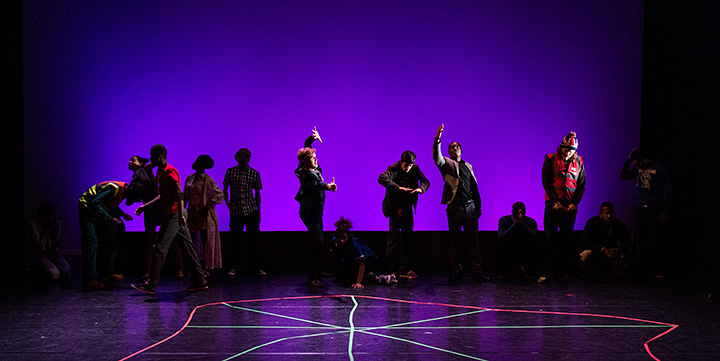This afternoon I have had a phone call from one of our young people, who graduated from Generation Arts last year. They are currently training at a conservatoire drama school on the BA Acting Course. The reason they rang Generation Arts was evidently to let off steam, speak to a friendly voice and reach out in despair after a series of racist incidents that have blighted their first year on the BA course. (It seems pertinent to specify that this young person is Black). Sheer frustration and anguish permeated their voice as they described the sequence of incidents in which they have been victimised, ostracised, or verbally pushed and poked to the limits of their tolerance during the first year of their training. Though determined to finish the course and achieve their degree qualification (a significant achievement and they would be the first member of their family to do so) this young person is nearing the edge of their will and strength to continue the course.
No words can express how wrong this is.
The worst thing is, this came as no shock to us, because this young person is not the first person to report such things. In fact, over the last few years since Generation Arts started getting young people into Drama school (we started in 2012 and our first graduates emerged in 2015) we have had steadily more contact from young people reaching out to us as they contemplate quitting their degree, or simply cannot face going into that environment for one day more due to the racism they are experiencing on a daily basis. It isn’t right that each and every one of our Black graduates who has got onto a BA Acting course has, at some point, thought about quitting because of the racism.
Black acting students and graduates won’t be the remotest bit surprised by any of this by the way, and there have been various public conversations about the significant problem of racism (both structural and individual) in our drama schools over recent years. But are the white-led establishment really taking this seriously and taking action?
It is no good having organisations like Generation Arts, WAC Arts, and more recently Open-door and others providing opportunities that support marginalised young people into drama school, if when they get there they are faced with racism at a level that is beyond even the unacceptable racism that BAME people experience every day of their lives in the ‘outside world’ so to speak. At a sharing event held by Generation Arts last year, Black students reported meeting numerous first year Acting students who said they have never seen a Black person before. One Black actor said a white student kept looking at their hands and asking why their palms were white. Others described hair being touched, and bums being commented upon. Students described being assigned stereotypical ‘Black’ roles in class activities by fellow students or staff, asked to do a Jamaican accent when their family originated from Nigeria, told they were too aggressive, and referred to as “you people”. One student found themselves ‘front of house’ at a drama school being congratulated by a staff member on a wonderful performance, and when they pointed out they weren’t in the play, realised the compliment was intended for the only other Black student in the class. Another student said they felt targeted and goaded into becoming frustrated and then accused of losing their temper. The majority said they always felt the need to arrive at class earlier than their counterparts, and generally be better, to make up the perceived gap in expectation.
The impact of these daily acts of racism and micro-aggressions and this ostracisation on students’ mental health and wellbeing is not to be underestimated (as with all racism, but perhaps even more amplified in the intense environment of drama school training); many Black students we have spoken to have sought out counselling. The young people at our sharing had been through the proper channels, they had raised complaints, followed procedures, and sat in the principal’s office, but said it just keeps happening day after day. The advice from our successful graduates who have come through drama school is more often than not, ‘it sucks, and there is nothing you can do about it except don’t let them win. Finish the course, get the degree and prove them all wrong’.
It’s not right that students have to suck it up. We all know that drama schools are white spaces and that change is either too slow or non-existent. Thank goodness that conversations are being had, championed by the likes of Steven Kavuma’s Diversity School Initiative and by organisations like Act for Change, and important and valuable work IS being done to promote inclusion (and importantly the word is ‘inclusion’ and not simply ‘diversity’) by pockets of brilliant people like the team at Central Connects, and Dr Sylvan Baker for example. At Generation Arts we have continued to consult with our young people and reach out to our drama school partners with whom we are increasingly focussing on, not just ‘access’ but inclusion itself. I hope our work will have an impact, but like many of these initiatives we are small and funding is tight and our scope is therefore limited. A collective movement at higher level needs to be mobilised so that a positive impact is felt urgently in the drama school rehearsal rooms right now.
“It isn’t right that each and every one of our Black graduates who has got onto a BA Acting course has, at some point, thought about quitting because of the racism.”


